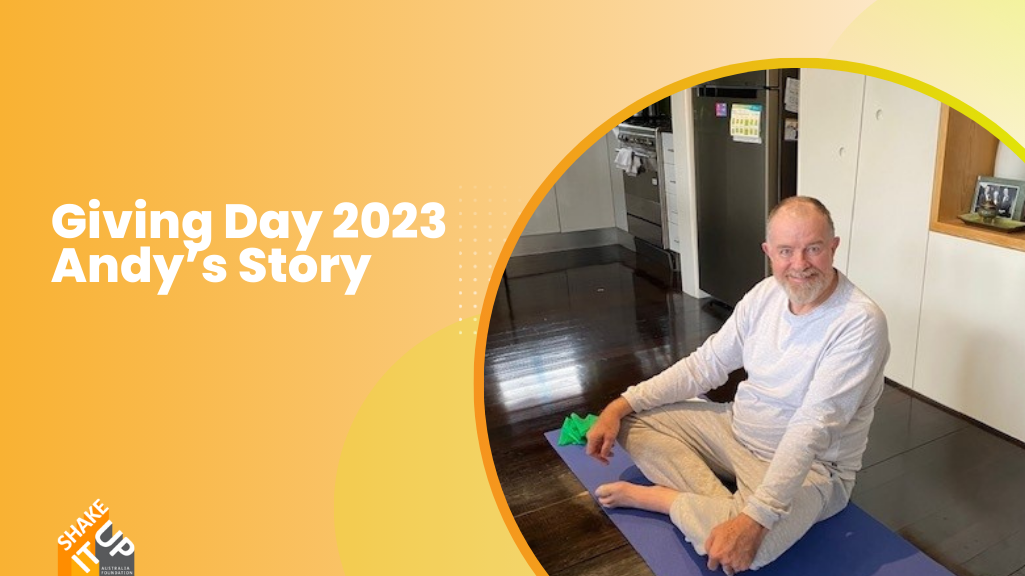
Did you know this Wednesday is International Giving Day? It’s a day when the global community will come together to donate to good causes, and we’re asking for your help. Your donation allows us to continue our mission to accelerate high-impact, game-changing Australian research into better treatments and ultimately, a cure for Parkinson’s disease.
In the lead up to Giving Day, we’re hearing from Australians living with Parkinson’s, to share their story, and tell us what support for research will mean for them.
Andy’s Story
A fighter at heart, Andrew discovered the martial arts at the age of 17 which became a vehicle for not only learning to fight but also the development of his spirit. His relentless pursuit of becoming one of the best in martial arts took him all over the globe, from Australia to the United States, South Korea, Thailand, the Philippines and many other countries to perfect his skills. However, his focus was always on training for a greater purpose and gaining a greater understanding of himself.
When Andrew was diagnosed with Parkinson’s disease he used his rich life experience to turn his diagnosis into something to learn and grow from. He refused to let his life be characterised and overshadowed by the chronic and progressive neurological disease. Instead, Andrew has chosen to approach his disease as yet another challenge in life which he faces head on.
Andy’s first sign of Parkinson’s disease was a tremor. “I was sitting in my kitchen at home,” he told Men’s Health magazine, “and I felt an internal tremor, like my whole body was shaking. When I held my fingers out, I had a slight tremor in two of my fingers. It was very subtle, and I went to the doctor, he checked me over and he said, ‘Oh, it’s nothing.’”
It was six years after his first tremors that Dickinson was finally told he had PD. “I was in peak condition during that time, still sparring regularly and teaching regularly, so it came as a real shock that the faculties I’d so relied on for so many years to keep me in the best shape of my life were sort of giving up. I understood that the body will age over time but I wasn’t prepared to have it happen as fast as it did.” Once he knew the truth, he says “I remember coming out of the neurologist’s with an incredible sense of relief,” he says. “There’s nothing worse than having an enemy that you don’t know anything about. You can’t train for that particular opponent. Knowing what I was up for, and up against, I could get the best possible information, the best possible neurologist, the best possible support.”
We spoke to Andy about what Parkinson’s research means to him, and his day-to-day experience.
Why do you think it is so important to fund innovative Parkinson’s research?
It takes patience and determination and we need to follow all avenues of research. It might just be one of the smaller projects that cracks it!
What is one thing you wish people understood more about Parkinson’s disease?
I wish people understood that it can be a young persons disease, It would be good if people were just a little kinder – as not everyone moves or talks as fast as they do.
Our mission is to slow, stop and cure Parkinson’s through research. What would that mean for you?
I have been living a life where by I squeeze the most out of every day. We have to make the most of what we have right now. Make it the best it can possibly be. It would be great to have treatments that can improve the quality of everyday.
Make a donation for Giving Day 2023
Can you help us change the future people living with Parkinson’s? 100% of your donation will go directly to research, thanks to our founding directors’ commitment to cover all administration costs. Your help is making a real difference to change the future for people with Parkinson’s.


